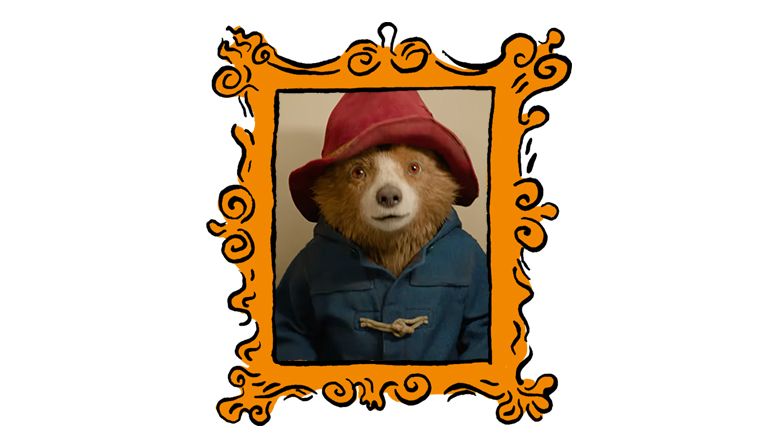Of the 250,000 or so British Latinos, only one of us is a national treasure. A bright-eyed Londoner, he’s as analogous with the city as Beefeaters and Routemaster buses. He arrived as an undocumented immigrant and has become the face of every souvenir shop in Britain. He’s also a bear.
Paddington, who was created by Michael Bond in the late 1950s, is a quintessence of Britishness. He wears an explorer’s hat and duffle coat, and loves marmalade. 50p coins have been minted in his honour, and he had tea with the Queen. Yet, like many immigrants, Paddington never quite fits in. Strangers and neighbourhood watchmen glance in his direction, and people want to know where he’s from. His identity is a paradox. As he says in the story “Parking Problems”: “I’m not a foreigner. I’m from Darkest Peru.”
In the books, Paddington’s Peruvian identity is only mentioned in passing. It’s an absence set to be addressed by the third film in the franchise, Paddington in Peru, which is released tomorrow. This won’t be Paddington’s first return journey (between books six and seven he returns for Aunt Lucy’s 100th birthday), but it’s the first time we will actually see him back in his native land.
That land was very nearly not Peru. In fact, Paddington being Peruvian was an afterthought—or, rather, a correction. As a letter from Bond’s literary agent shows, the man who created one of Britain’s most-loved bears seems to have known precious little about them:
“I have now read your novel, A Bear Called Paddington, and I think it quite a publishable tale and I like it well. My spies tell me, however, that you have slipped up in that there are no bears in Africa, darkest or otherwise. The race of bears in the Atlas Mountains has been extinct for centuries. Children either know this or should know this and I suggest you make suitable amends, for which purpose I am returning herewith the script. There are plenty of bears in Asia, Europe and America, and quite a few on the Stock Exchange.”
Rescued from one blunder, Bond quickly made another—Paddington’s fur colour. Given that it’s the only ursine species in South America, Paddington must be an Andean spectacled bear. These bears, cute and appropriately cuddly, are almost always black. Paddington, however, is much fairer—somewhere between light brown and wheat beer. It seems that colourism—the preference for non-white people with light skin rather than dark—extends even to fictional bears.
At the same time, Bond tries to lend mystique to both Paddington and his homeland, which the narrator and protagonist regularly call “Darkest Peru”. The term has exoticist and colonial connotations, and is a curious way for Paddington to refer to his birthplace. There are two possible explanations. One is that Paddington, a proud Peruvian, is stereotyping his place of origin. The alternative (hardly more palatable) is that in the Paddington universe, the country really is called “Darkest Peru”. This may in fact be the case. In ‘A Chance Encounter’, Mr Brown, reading from a newspaper, informs Paddington: “There’s a team from Darkest Peru arriving to take part in the Olympic Games.”
The Browns, kindly folk who pick up a refugee on a railway platform, instantly make Paddington part of their family. The Browns find Paddington’s bear name “unpronounceable”, but could surely have tried a bit harder. Instead, to ease their foreign friend’s assimilation, they name him something much more straightforward.
It’s part of a ritual of adoption, but there’s a whiff of colonialism in imposing a name on something or someone that already has one. Indeed, in the world of Paddington, Brits are constantly christening Peruvian bears. In the first film, we learn that the name “Lucy” was bestowed by the explorer Montgomery Clyde; and the same is true of Paddington’s uncle Pastuzo, who was named after a boxer whom Clyde met in a bar.
Paddington’s Peruvianness is lost in his process of acculturation. Although he is clearly “Other”—in appearance, in bright-eyed wonder, in the moments of comic misunderstanding—that “Other” is mostly unspecific. Save for the occasional arrival of Peruvian visitors, and the time Mrs Bird tries to make alfajores (a confection similar to macaroons), it’s rare that Paddington can directly engage with his heritage. It’s time that changed. Up to now, the most South American thing about Paddington is that, living in Britain, he never takes off his winter coat.
Back in Peru for the new film, Paddington will have to confront an uncertainty faced by many migrants: what it means to return “home”. As and when he finds Aunt Lucy—his adopted guardian and the person who taught him English—there’s no reason why they shouldn’t speak in their native tongue. Paddington gets enough English practice with the Browns. I’m expecting whole conversations to be in Spanish, Quechua, Aymara, another indigenous language, or in bear. It’s 2024, and high time family films used subtitles.
The world of Paddington mirrors what most Britons hope the country is: multicultural, polite and rather quaint. The bear at its centre reflects the best of our society’s values. But even though Paddington is more British than the British, he can be Peruvian too.
Make Paddington Peruvian again
The new film takes its bear-hero home. But what meaning will ‘home’ have for him—and for us?
November 07, 2024









